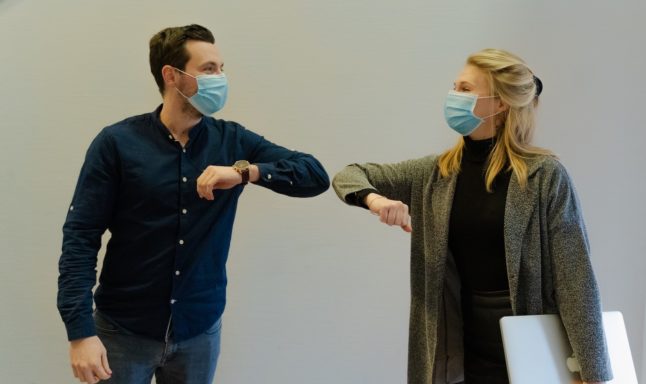According to the latest government figures, Switzerland as at March 12th has vaccinated just over 14 percent (14.09 percent) of the population, or 1.2 million people.
So far, 332,585 people (3.85 percent) of the population have received both vaccine doses.
While the rollout is slower than some of the world leaders such as Israel and the United Kingdom, the percentage figure recently overtook that of the European Union.
The progress has been made despite delays and problems with the rollout.
Switzerland became the only major European country not to approve the AstraZeneca vaccine for people of all ages, despite having pre-purchased 5.3 million doses.
READ MORE: Why has Switzerland ordered over 35 million doses of coronavirus vaccine?
This has meant that so far Switzerland has relied only on two vaccine manufacturers: Moderna and Pfizer-Biontech.
On Thursday, news emerged that the government had turned down an offer to manufacture the Moderna vaccine on home soil, seemingly for administrative reasons.
What does this mean for Switzerland?
Despite the setbacks, the vaccination drive appears to have made an impact in several areas.
Unlike the United Kingdom, where a large percentage of the population has been given just one shot of the vaccine, Swiss officials have prioritised high-risk groups – most of whom have already received both doses.
In several Swiss cantons, more than 70 percent of the high-risk population has received one or two doses of the vaccine.
In Geneva, this figure is at 94 percent.
New infections among people aged over 80 have fallen dramatically in recent weeks.
The number of cases among people aged over 80 fell by 29 percent between the last week of February and the first week of March.
A smaller yet still noticeable decrease was recorded over the same period among people aged in their 70s of 7.6 percent.
Is this definitely due to vaccinations?
As reported by Swiss newspaper Watson, “the sharpest declines were seen among the groups that received the most vaccine doses”.
The falls were less significant among those who have not been targeted for vaccinations, for instance people in their 60s only saw a 1.4 percent reduction.
While lockdown measures no doubt played some kind of a role, evidence from previous lockdowns has shown that infection rates have risen uniformly among different age groups – rather than dramatically in those age groups which have been vaccinated.
Hospitalisations also fell
Hospitalisations have fallen in all age groups across Switzerland – but they have been the most considerable among those in older age groups since the start of 2021.
Among people over 80, hospitalisations due to coronavirus have fallen by 61.5 percent – and by 43.5 percent among people in their 70s.
Hospitalisations have also fallen in people under 70, albeit only by 8.5 percent.



 Please whitelist us to continue reading.
Please whitelist us to continue reading.
It smells
Switzerland became the only major European country not to approve the AstraZeneca vaccine for people of all ages, despite having pre-purchased 5.3 million doses.
Why? No need to answer it obvious like so many things.